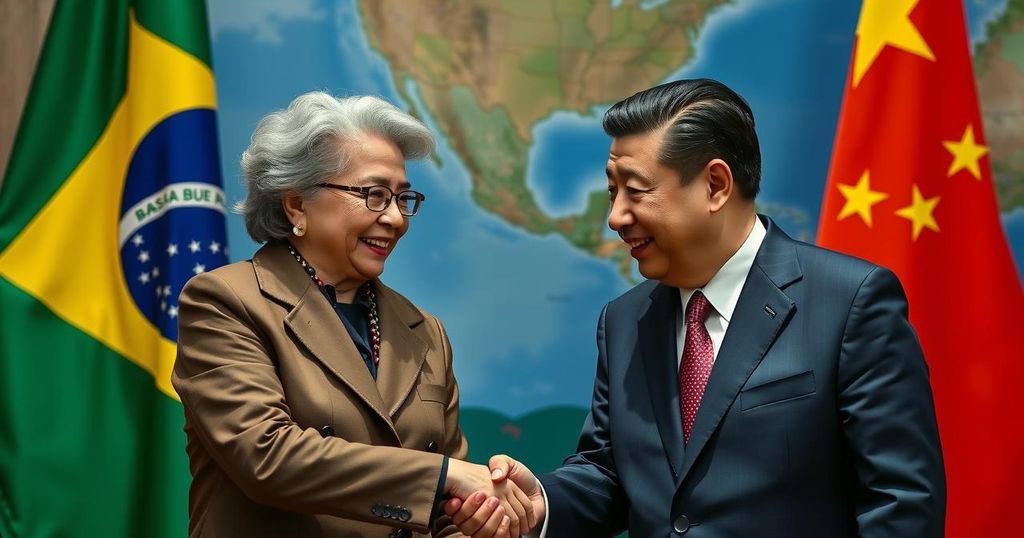Brazil and China deepen relations through the signing of nearly 40 trade agreements, focusing on trade, technology, and environmental partnership, as both leaders foresee a new phase in collaboration. This comes amid shifting geopolitical dynamics and highlights China’s growing influence in Latin America while Brazil seeks to balance its foreign policy.
In a significant enhancement of diplomatic and economic ties, Chinese President Xi Jinping met with Brazilian President Luiz Inacio Lula da Silva in Brasilia, resulting in the signing of nearly 40 trade and development agreements. These accords are aimed at fostering cooperation in various sectors, including trade, technology, and environmental protection. Both leaders expressed optimism about the future of Brazil-China relations, indicating a shift towards a more strategic and collaborative partnership between the two nations. President Xi described the occasion as a historic milestone in the evolution of China-Brazil relations, emphasizing China’s commitment to becoming a “golden partner” to Brazil. In turn, President Lula expressed his confidence that this partnership would surpass all expectations and herald a new era in bilateral relations. The strengthening of these ties comes at a time when China is increasingly important in Latin American markets, highlighting Brazil’s attempt to balance relationships with traditional allies while engaging with emerging powers like China. Xi’s visit, which followed his attendance at the recent G20 summit, reflects his strategic focus on enhancing ties with major developing nations, a clear indication of China’s growing influence in global affairs. In contrast, outgoing U.S. President Joe Biden’s notable absence from pivotal moments has raised questions about the U.S. role in the region moving forward, especially amid anticipated policy changes under a potential Trump administration. The ceremonial welcome for Xi included elaborate displays of military honors and cultural festivities, showcasing Brazil’s commitment to strengthening this bilateral relationship. With the two nations enjoying more than $160 billion in annual trade, this partnership is expected to continue evolving, with Brazil exporting primarily agricultural commodities while importing technology and consumer goods from China. This meeting not only signifies a deeper economic collaboration but also illustrates Brazil’s aspirations to assert a more prominent role within the international arena, balancing its relations with both traditional powers like the United States and emerging nations such as China and Russia.
The meeting between Presidents Xi Jinping and Luiz Inacio Lula da Silva took place against a backdrop of shifting global political dynamics. China has emerged as a critical player in Latin America, providing investment and trade opportunities that differ from traditional Western partnerships. Lula’s ascent to the presidency marked a departure from the previous administration’s approach, emphasizing Brazil’s realignment of foreign policy to engage more assertively with both Western and non-Western powers. As such, this meeting and its resultant agreements signify Brazil’s strategic intention to leverage its economic position by deepening ties with key partners like China, while navigating complex geopolitical landscapes.
In conclusion, the recent agreements between Brazil and China mark a significant development in the bilateral relations of the two nations. The commitment to cooperate on multiple fronts, such as trade and environmental sustainability, points toward a lasting partnership that could reshape the landscape of international trade in Latin America. With Brazil’s strategy of balancing its foreign relationships, the future might see an even greater collaboration not just with China, but also with other emerging economies, enhancing Brazil’s global stature.
Original Source: www.aljazeera.com






